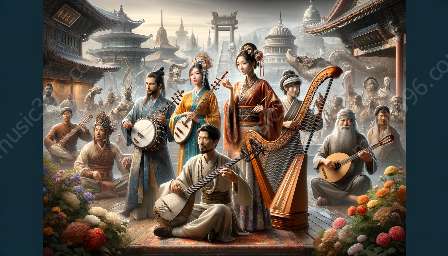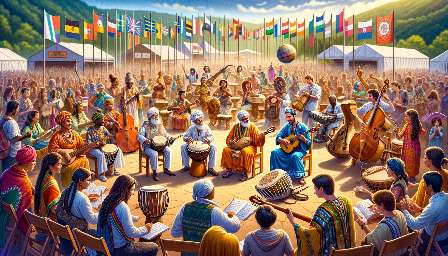Introduction to South Asian Music and its Political and Social Relevance
South Asian music has a rich tradition rooted in diverse cultural and social contexts. It has been a powerful tool for addressing political and social issues, reflecting the struggles, aspirations, and resilience of communities in the region. From the traditional folk music to contemporary popular genres, South Asian music encapsulates the essence of societal fabric and provides a platform for expressing dissent, solidarity, and resilience.
Historical Context
The history of South Asian music is intertwined with the region's complex socio-political landscape. Music has been used as a means of protest and resistance against colonialism, oppression, and social injustices. Icons like Rabindranath Tagore in Bengal and Amir Khusrow in the Indian subcontinent have used their music as a medium to voice their concerns and convey messages of unity and freedom. This historical underpinning has influenced the evolution of South Asian music as a means of social and political expression.
Role of Folk Music
Folk music, with its grassroots origins, has served as a mirror to the rural and urban experiences of the people in South Asia. It reflects the struggles of marginalized communities, highlighting issues such as poverty, caste discrimination, and gender inequality. Through storytelling and poetic lyrics, folk musicians have voiced the grievances of their communities and mobilized support for social change. This enduring tradition continues to be relevant in addressing contemporary social issues through music.
Artistic Expression and Influence in the Global Arena
Contemporary South Asian music, including Bollywood film music, classical compositions, and fusion genres, has found a global audience, amplifying the reach and impact of its political and social messages. It has become a medium for advocating cultural inclusivity, raising awareness about global issues, and promoting cross-cultural dialogue. The fusion of traditional South Asian sounds with modern musical elements has created a sonic landscape that resonates with audiences worldwide, fostering greater understanding of political and social issues through music.
South Asian Music as a Catalyst for Change
South Asian music has played a pivotal role in shaping public discourse and mobilizing communities towards positive social change. Through its emotive melodies and poignant lyrics, it has addressed issues such as human rights, communal harmony, environmental conservation, and gender empowerment. Artists have used their platform to spark conversations, challenge norms, and inspire collective action, making South Asian music an essential vehicle for fostering empathy and social consciousness.
Conclusion: Culturally Rich and Globally Relevant
South Asian music's engagement with political and social issues underscores its enduring relevance in contemporary discourse. Its ability to transcend geographical boundaries and resonate with diverse audiences positions it as a potent tool for fostering empathy, understanding, and solidarity. By delving into the realms of political and social issues, South Asian music continues to enrich the global tapestry of world music, offering nuanced perspectives and shaping narratives that resonate with the human experience.










































